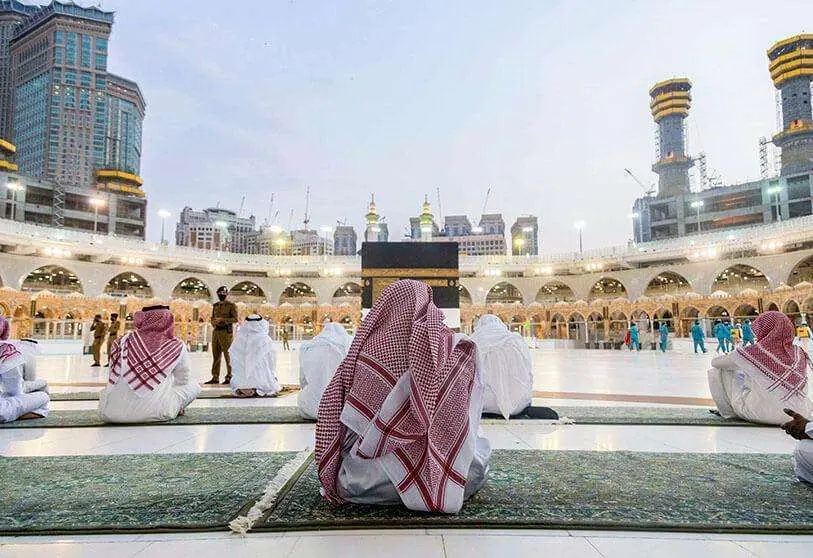Aftermath of war in Ukraine tarnishes Ramadan's festive spirit

The consequences of the war in Ukraine, such as soaring food prices, have tarnished the festive spirit of the start of the Muslim holy month of Ramadan, a celebration that has already been marred in the Middle East over the past two years by the coronavirus crisis.
With health restrictions lifted, the Muslim-majority countries of the region begin another Ramadan far from normal, this time marked by frugality and another crisis that threatens to further impoverish an area that has not yet recovered from the consequences of COVID-19.
According to the World Food Programme, the war in Ukraine is pushing the Middle East and North Africa into hunger as some foodstuffs become "alarmingly expensive", as the region imports products such as wheat and grain mainly from Ukrainian and Russian territory.
"The prices are crazy, since morning I have been wandering around Al Shorya market to buy my family's needs for the month of Ramadan, but I don't think I can buy everything," Um Imran tells Efe from Baghdad's oldest market.

This 50-year-old Iraqi woman, as she does every year, goes to the market to shop for the holy month, during which Muslims fast from sunrise to sunset and must abstain, among other things, from smoking or sexual relations during daylight hours.
In the face of this prohibitive price hike, the Iraqi government has taken measures such as cancelling customs duties on basic commodities and extending food and food ration cards, although this has not prevented a drop in demand during the month of Ramadan.
Gadir Masalha, a Jordanian housewife in a supermarket in the centre of Amman, told Efe that the situation this year is "really surprising" because of the rise in prices and because salaries have not been updated for more than two years.
"We can barely afford to buy basic products", she laments, while blaming the government for its permissiveness with traders, "who always take advantage of any international conflict to increase prices".
The government has already fined hundreds of traders for speculation, despite the Amman Chamber of Commerce's justification that the soaring prices are in line with global markets.

In recent weeks, the Egyptian pound has fallen by around 15 per cent against the dollar, which, together with the war in Ukraine, has led to a further rise in commodity prices in Egypt, which is taking measures such as producing wheat locally and banning the export of food and building materials.
This has affected the massive purchases Egyptians used to make in preparation for Ramadan, but this time, "people in the market were looking at the prices with surprise," says Altaf al Shal, a 65-year-old pensioner.
Among the products that have become more expensive are meat, bread and pulses, which Altaf says has led to a considerable reduction in purchases: "People are suffering, especially the middle and lower classes," he says.
The devaluation of the Sudanese pound has not only caused a commercial standstill, but also forced many vendors to close their shops. Ozman al Tom, owner of a small supermarket, says he is in a "very stressful" and extreme situation because of the increase in prices, especially sugar and flour, which he says have risen by more than 100 % compared to last month.
In addition to the global price crisis and the coronavirus, Sudan is facing a pressing economic recession and a recent coup d'état that has derailed the transition process in which the country was immersed. "The state has lifted its hand from everything and left us alone to face our destiny," laments Ali Jalal from Khartoum.

The overall price hike comes on top of food inflation that has long been in the hundreds due to the severe economic crisis unleashed in Lebanon at the end of 2019, one that has plunged nearly 80 percent of Lebanese into poverty and wiped out almost 90 percent of the value of the local currency.
Kotaiba, a 26-year-old resident of a predominantly Sunni neighbourhood in the capital, told Efe that the whole family used to gather in Beirut to break the fast, but now "it is no longer economically convenient", in a country where fuel prices are rising and it is also a scarce resource.
This, coupled with the rising cost of food, makes the grand banquets with which his family used to break the fast a distant memory: "Whatever there is, we cook it. We can't do what we used to do," the young man laments.








